The views expressed in our content reflect individual perspectives and do not represent the authoritative views of the Baha'i Faith.
If we want to make a difference in this world, we need to, as the saying goes, “find a need and fill it.” And that’s what Dr. Maulana Ron Karenga did at a time when African Americans were standing up for justice, freedom, and equal rights during the civil rights era.
After the Watts Riots — a six-day riot centered in an impoverished African American neighborhood resulting from long-standing grievances with the systemic racism and inequities they faced in housing, employment, and education in 1965 — Dr. Karenga created Kwanzaa in 1966 to unite and empower the Black community.
He said, “This is our duty: to know our past and honor it; to engage our present and improve it; and to imagine a whole new future and forge it in the most ethical, effective, and expansive ways.”
What Is Kwanzaa and Why Do People Celebrate It?
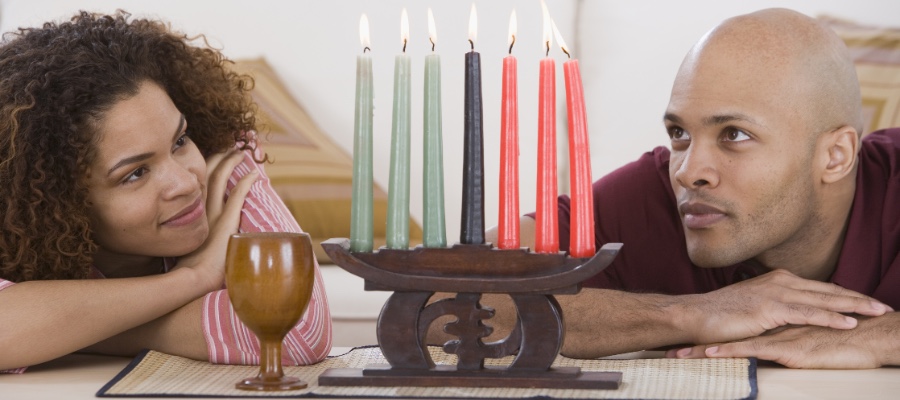
Kwanzaa is celebrated annually from December 26 to January 1. As explained by the National Museum of African American History and Culture, Kwanzaa is not a religious holiday but a cultural one that Dr. Karenga created to “reaffirm and restore African heritage and culture, introduce and reinforce the Nguzo Saba or the Seven Principles, serve as a nationally celebrated communal and non-heroic holiday, [and] as an act of cultural self-determination.”
Kwanzaa got its name from the Swahili phrase “matunda ya kwanza,” meaning “first fruits,” referring to the harvest festivals in Africa. The seven principles of Kwanzaa are expressed in Swahili. Each day of Kwanzaa celebrates one of these principles that were inspired by African values. People light a candle on their Kinara — a candelabra with seven candlesticks — for each principle on each day of Kwanzaa. I find these principles to be very spiritual since these values align with the Baha’i teachings.
What Are the 7 Days and Principles of Kwanzaa?
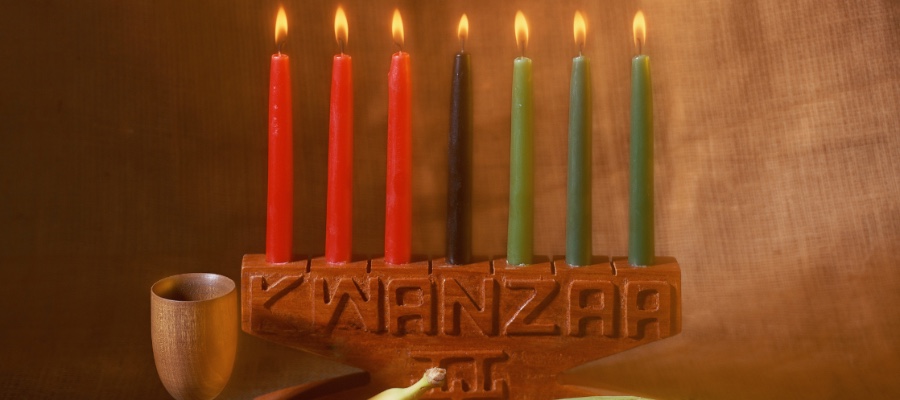
Day 1: Umoja (Unity)
Since Dr. Karenga created Kwanzaa to unite people throughout the African diaspora who had been separated from colonization, it’s no surprise that the first day of Kwanzaa celebrates unity and highlights the importance of striving for and maintaining “unity in the family, community, nation, and race.”
As stated in a letter written on behalf of the Universal House of Justice, “Baha’u’llah came to bring unity to the world, and a fundamental unity is that of the family.”
Day 2: Kujichagulia (Self-Determination)
The invention of Kwanzaa was an act of self-determination. This involves defining ourselves, naming ourselves, creating for ourselves, and speaking for ourselves.
Baha’u’llah, the prophet and founder of the Baha’i Faith, uplifted people of African descent by comparing them “to the black pupil of the eye surrounded by the white. In this black pupil you see the reflection of that which is before it, and through it the light of the Spirit shines forth.”
What an ennobling name to live up to!
Day 3: Ujima (Collective Work and Responsibility)
At a talk in Canada in 1912, Abdu’l-Baha, one of the central figures of the Baha’i Faith, said, “Regarding reciprocity and cooperation, each member of the body politic should live in the utmost comfort and welfare because each individual member of humanity is a member of the body politic, and if one member is in distress or is afflicted with some disease, all the other members must necessarily suffer.”
Collective work and responsibility is about building and maintaining our community together and making “our community’s problems our problems” and solving them together.
Day 4: Ujamaa (Cooperative Economics)
According to a 2016 analysis from the Corporation for Enterprise Development and Institute for Policy Studies, it would take African Americans 228 years to accumulate the same wealth that white people have now if the current policies stay the same.
The fourth day of Kwanzaa focuses on trying to alleviate this racial wealth gap that was created from centuries of oppression. The mission of this day is “to build and maintain our own stores, shops, and other businesses and to profit from them together.”
As the Baha’i writings say, “Be ye loving fathers to the orphan, and a refuge to the helpless, and a treasury for the poor, and a cure for the ailing. Be ye the helpers of every victim of oppression, the patrons of the disadvantaged.”
Imagine how much justice and equity we would have if everyone embodied this Baha’i teaching!
Day 5: Nia (Purpose)
For this fifth day of Kwanzaa, the purpose is defined as making “our collective vocation the building and developing of our community in order to restore our people to their traditional greatness.”
And, in around 1873, Baha’u’llah wrote: “Waste not your hours in idleness and sloth, but occupy yourselves with what will profit you and others.”
Day 6: Kuumba (Creativity)
On the sixth day of Kwanzaa, people express their creativity by doing as much as they can “to leave our community more beautiful and beneficial than we inherited it.”
The Baha’i writings say:
God has given us eyes, that we may look about us at the world, and lay hold of whatsoever will further civilization and the arts of living. He has given us ears, that we may hear and profit by the wisdom of scholars and philosophers and arise to promote and practice it.
Senses and faculties have been bestowed upon us, to be devoted to the service of the general good; so that we, distinguished above all other forms of life for perceptiveness and reason, should labor at all times and along all lines, whether the occasion be great or small, ordinary or extraordinary, until all mankind are safely gathered into the impregnable stronghold of knowledge. We should continually be establishing new bases for human happiness and creating and promoting new instrumentalities toward this end.
Day 7: Imani (Faith)
The last day of Kwanzaa celebrates faith — believing “with all our hearts in our people and the righteousness and victory of our struggle.”
As the Bab, the forerunner and herald of Baha’u’llah, said: “Arise in His name, put your trust wholly in Him, and be assured of ultimate victory.”
You May Also Like
Comments



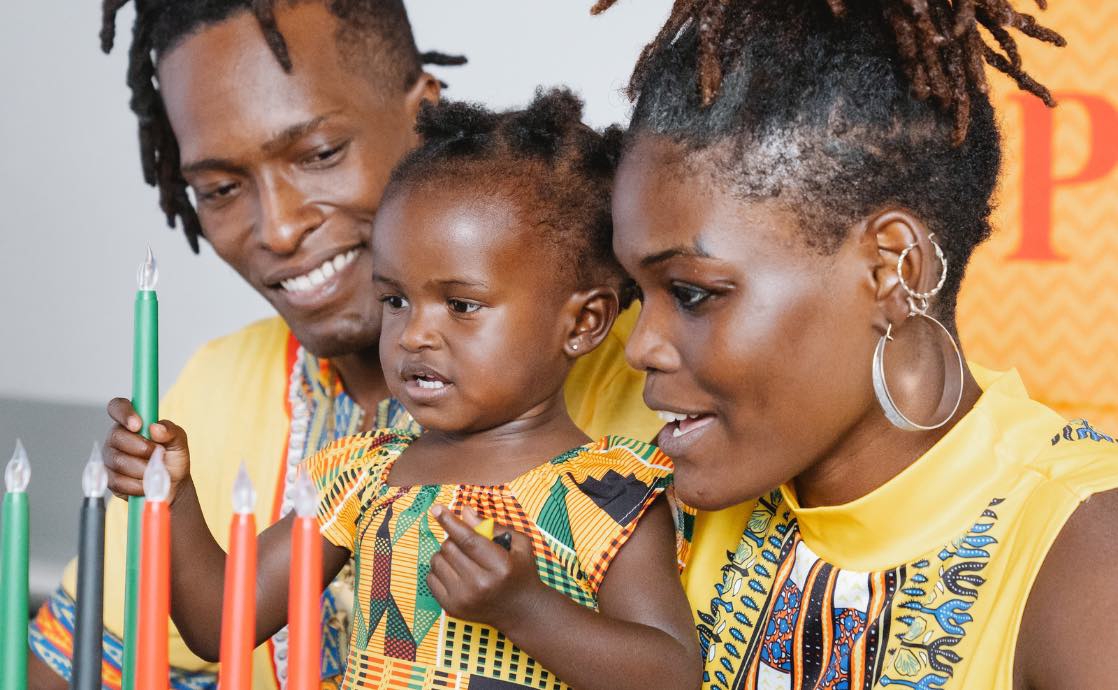


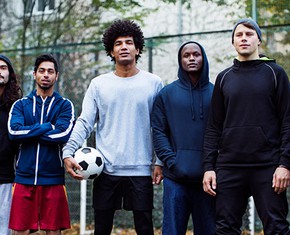
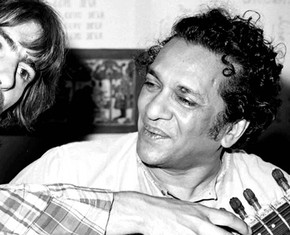









It's like "throwing the baby out with ...the bathwater."
Why are we posting about this man and his fake holiday?
Many thanks and “Habari Gani! Wishing you a blessed Kwanzaa.”
Many thanks and “Habari Gani! Wishing you a blessed Kwanzaa.”